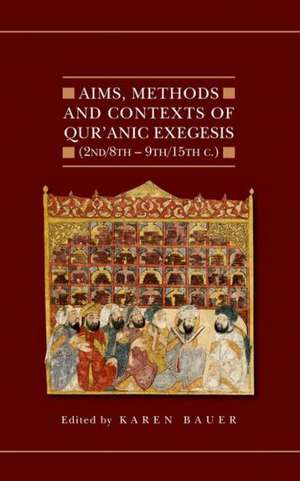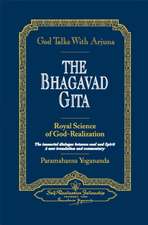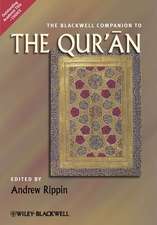Aims, Methods and Contexts of Qur'anic Exegesis (2nd/8th-9th/15th Centuries): Qur'anic Studies Series
Editat de Karen Baueren Limba Engleză Hardback – 12 dec 2013
Preț: 364.30 lei
Preț vechi: 438.84 lei
-17% Nou
Puncte Express: 546
Preț estimativ în valută:
69.71€ • 72.98$ • 57.68£
69.71€ • 72.98$ • 57.68£
Carte disponibilă
Livrare economică 04-10 martie
Preluare comenzi: 021 569.72.76
Specificații
ISBN-13: 9780199670642
ISBN-10: 0199670641
Pagini: 503
Dimensiuni: 151 x 223 x 44 mm
Greutate: 0.92 kg
Editura: OUP OXFORD
Colecția OUP Oxford
Seria Qur'anic Studies Series
Locul publicării:Oxford, United Kingdom
ISBN-10: 0199670641
Pagini: 503
Dimensiuni: 151 x 223 x 44 mm
Greutate: 0.92 kg
Editura: OUP OXFORD
Colecția OUP Oxford
Seria Qur'anic Studies Series
Locul publicării:Oxford, United Kingdom
Recenzii
The academic and intellectual content is high. This is a volume that anyone concerned with tafsīr will need to consult--it is a valuable contribution to our understanding of the nature and development of the field, and it raises questions and treats issues that are important. Over and over again I found myself drawn in to the papers because of their interest.
A valuable contribution to the study of tafsīr. Reading the book from beginning to end has the effect of immersing the readers in the commentarial tradition and educating them in the aims and methods of Qur'anic exegesis.
[T]his is a highly valuable contribution to the field which stakes out the frontiers in tafsir studies. In doing so it shows the need to at reconstructing the exegetes' hermeneutics. It also shows that early dating of sources and concepts appears to be becoming more plausible, possibly indicating that linguistics has functioned as the necessary sustenance of tafsir
A valuable contribution to the study of tafsīr. Reading the book from beginning to end has the effect of immersing the readers in the commentarial tradition and educating them in the aims and methods of Qur'anic exegesis.
[T]his is a highly valuable contribution to the field which stakes out the frontiers in tafsir studies. In doing so it shows the need to at reconstructing the exegetes' hermeneutics. It also shows that early dating of sources and concepts appears to be becoming more plausible, possibly indicating that linguistics has functioned as the necessary sustenance of tafsir


























